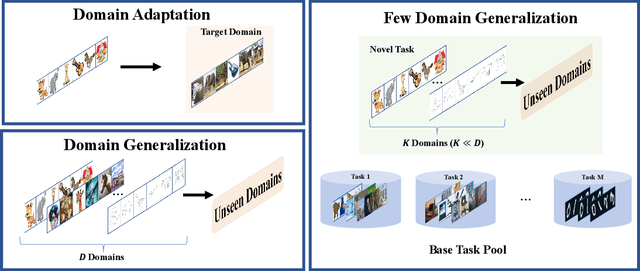Meta Adaptive Task Sampling for Few-Domain Generalization
Paper and Code
May 25, 2023



To ensure the out-of-distribution (OOD) generalization performance, traditional domain generalization (DG) methods resort to training on data from multiple sources with different underlying distributions. And the success of those DG methods largely depends on the fact that there are diverse training distributions. However, it usually needs great efforts to obtain enough heterogeneous data due to the high expenses, privacy issues or the scarcity of data. Thus an interesting yet seldom investigated problem arises: how to improve the OOD generalization performance when the perceived heterogeneity is limited. In this paper, we instantiate a new framework called few-domain generalization (FDG), which aims to learn a generalizable model from very few domains of novel tasks with the knowledge acquired from previous learning experiences on base tasks. Moreover, we propose a Meta Adaptive Task Sampling (MATS) procedure to differentiate base tasks according to their semantic and domain-shift similarity to the novel task. Empirically, we show that the newly introduced FDG framework can substantially improve the OOD generalization performance on the novel task and further combining MATS with episodic training could outperform several state-of-the-art DG baselines on widely used benchmarks like PACS and DomainNet.
 Add to Chrome
Add to Chrome Add to Firefox
Add to Firefox Add to Edge
Add to Edge